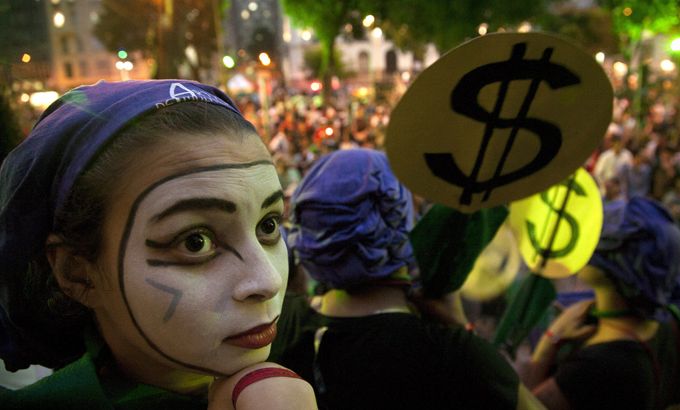
Rio+20: A corporate environment?
As business players and activists gather for the environment summit, we ask what corporations are doing for the planet.
More than 100 heads of state and 50,000 delegates – business players and activists – have been in Rio for the Rio+20 summit, hoping for a new agreement to safeguard the future of the planet.
It is called Rio+20 because 20 years ago, the first Earth Summit, creating the first international agreements on climate change, was held in the Brazilian city.
Keep reading
list of 4 itemsAre seed-sowing drones the answer to global deforestation?
Rainfall set to help crews battling wildfire near Canada’s Fort McMurray
The Alabama town living and dying in the shadow of chemical plants
But what has happened since then?
Well, the grave future outlined in 1992 appears to be already upon us. For a start, there are 1.46 billion more of us today. And the planet is already half a degree warmer. Annual carbon emissions have risen by almost 50 per cent and the amount of Arctic sea ice has decreased by 35 per cent.
On this episode of Counting the Cost, Al Jazeera’s Gabriel Elizondo reports on the ups and downs of ‘living off the land’ in Brazil.
Then our Latin America editor, Lucia Newman, sits down with Juan Rafael Elvira Quesada, Mexico’s environment minister, to ask why Mexico is pushing to get rid of fuel subsidies.
The minister lays out an argument that governments can facilitate change and create an environment in which corporations can operate.
But what are corporations actually doing?
Al Jazeera’s Veronica Pedrosa speaks to Harish Manwani, Unilever’s chief operating officer, about why his company has decided to put sustainability at the centre of its growth plans.
And finally, GDF Suez is Europe’s biggest power and natural gas company. It has been telling developing nations to balance their growth with moves to green technology. Veronica Pedrosa asks Gerard Mestrallet, the company’s chief executive, why.
Watch each week at the following times GMT: Friday: 2230; Saturday: 0930; Sunday: 0330; Monday: 1630. Click here for more Counting the Cost. Follow Kamahl Santamaria @KamahlAJE and business editor Abid Ali @abidoliverali |
